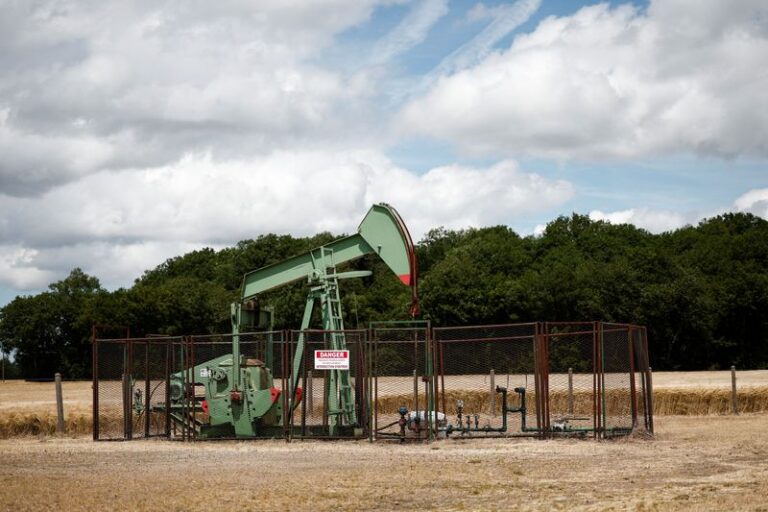(Reuters) – Oil prices were little changed on Tuesday as concerns about China’s economic recovery prospects offset supply worries caused by Middle East tensions and a Ukrainian attack on a Russian refinery.
Brent crude futures for August delivery rose 7 cents, or 0.08 percent, to $86.06 a barrel as of 0015 GMT ahead of the contract’s maturity later this week. The more actively traded September contract added 8 cents, or 0.09 percent, to $85.23.
U.S. crude oil futures rose 11 cents, or 0.13%, to $81.74 a barrel.
Both indexes rose about 3% last week, marking two consecutive weeks of gains.
But since then, concerns have grown about the prospects for a recovery in the world’s second-largest economy.
Chinese retailers face a challenging short-term outlook after a disappointing mid-year online shopping festival.
Consumers in China, the world’s largest oil importer, are cutting back on spending due to concerns about their personal finances amid sluggish property prices, sluggish wage growth and high youth unemployment, raising doubts about whether China can meet its economic growth target of around 5 percent this year.
Meanwhile, at least 11 Palestinians in Gaza were killed in two Israeli airstrikes targeting aid supplies on Monday, medical sources said, as Israeli tanks advanced deeper into the southern town of Rafah, repeating their offensive into northern areas they had seized months ago.
More than eight months after the fighting began, U.S.-backed international mediation has so far failed to reach a ceasefire. Hamas says any agreement must end the fighting, but Israel insists it will only agree to a temporary halt until Hamas is defeated.
In the other major conflict, Ukrainian President Volodymyr Zelensky said on Monday that Ukraine had attacked more than 30 Russian oil processing and storage facilities, but did not say when.
In the latest attack on June 21, Ukrainian drones hit four oil refineries, including the Irsky refinery, one of Russia’s main fuel producers in southern Russia.
EU countries agreed on new sanctions against Russia over the Ukraine war on Monday, including a ban on Russian liquefied natural gas (LNG) being reloaded in the EU and shipped to third countries.
In the United States, San Francisco Federal Reserve Bank President Mary Daly said on Monday that she doesn’t think the U.S. central bank should cut interest rates until policymakers are confident that inflation is heading toward 2%.
Delaying rate cuts would keep borrowing costs high for longer, which could slow economic activity and hurt oil demand.
A preliminary Reuters poll on Monday showed U.S. crude oil inventories are expected to fall by 3 million barrels in the week to June 21. Gasoline inventories are also expected to fall, while distillate stocks are seen to have risen last week.
(Reporting by Arathy Somashekhar in Houston; Editing by Jamie Freed)

